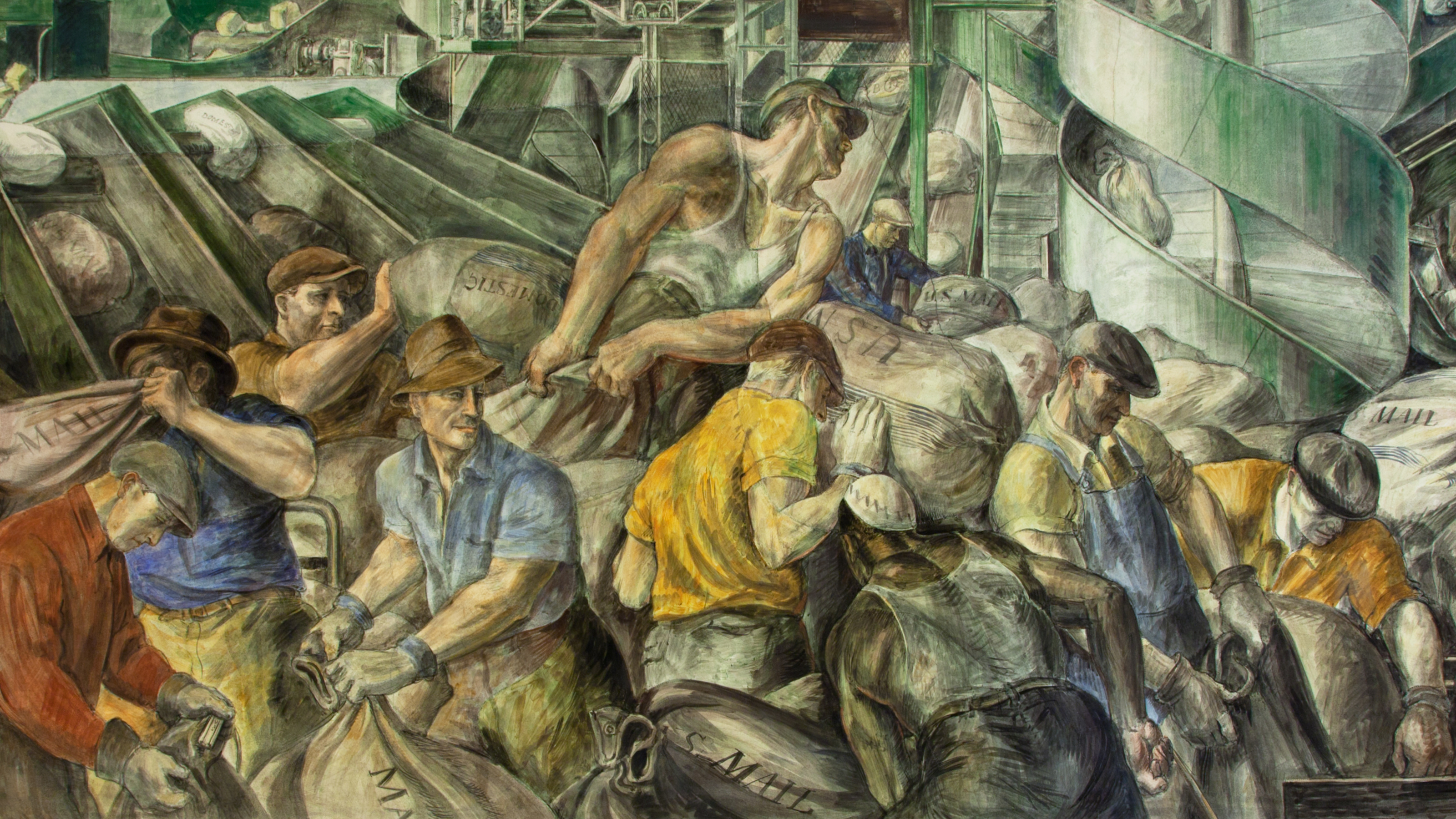Codetermination: A way to rebalance the economy?

Pexels/RawPixel.com
- Codetermination is the name for corporate governance systems that place workers on the executive board.
- It is very popular in Europe but has long lost its popularity in the United States.
- It offers a variety of benefits, but it would change many aspects of the American economy.
We are living in an age where the questioning of major institutions occurs regularly. Large numbers of Americans support changing to a new economic system, and even many who recommend keeping capitalism think it needs a bit of an overhaul.
One idea, common in Europe but less so in America, that does the latter is called codetermination and maintains capitalism and the private ownership of property while giving workers a say in how their workplaces are managed. We’ll look at what it is, how it works, and the proposal to bring it to America.
What is codetermination?
Codetermination can be broadly defined as workers’ participation in decision-making in business affairs. This can take many forms, from workers’ councils that offer advice on how to improve productivity in exchange for bonuses to having workers’ representatives on executive boards. The basic idea is to give workers a way to protect their interests and help advance the organization in a formalized way. It has the added benefit of treating workers as people rather than as objects for productivity.
How does it work in the places that have it?
Codetermination is much more common in Europe than in the United States. Of the European countries, Germany is far and away the most invested in the concept. In Germany, all companies over a certain size are required to have some kind of it, with worker and union representatives occupying anywhere from a third to half of the boards of some major firms.
Most Western European companies have two boards, one that manages the day to day affairs of the company and one that supervises them. In the European firms with codetermination, employee representatives are placed on the supervisory board. They vote, deliberate, and otherwise help to run the company in the same way as any other board member but with a different set of values than mere profit.
Other countries in Europe also have codetermination, though we won’t look into them here. The Germans also have workers councils that introduce an element of democracy to the shop floor in addition to the boardroom that is also worth digging into.
In the United States, a different kind of codetermination was common during parts of the 20th century. The Scanlon plan, a type of codetermination, was designed in the United States and was widely adopted in many industries. Based on the idea that workers did better when they were participating, the plan creates committees of workers and management that propose solutions to problems and develop ideas to improve productivity. In many cases, improved productivity translates into bonuses.
The plan was designed for failing enterprises but was later adopted by successful ones when they realized its advantages. During WWII, many companies adopted this system as a way to improve both productivity and morale. Interest in this program tanked after the war ended, and today the idea is entirely foreign to most Americans.
What effect does this have?
Studies have shown that codetermined businesses operate with long-term thinking rather than pursuing short-term profit and see improvements to their productivity. Another study found that codetermination can keep income inequality low across an entire country, presumably by keeping executive pay at reasonable levels and putting that money either in the hands of workers or back into the company. Countries with more codetermination also see fewer strikes.
Another study that cast doubt on the productivity benefits did find the system increased the bargaining power of the workers.
It also isn’t too horrible for the economy overall to have large firms run this way, given how the German economy is one of the best in Europe. Over the last few decades, their economy has grown a tiny bit faster than America’s. Fears that codetermination would turn Germany into Tito’s Yugoslavia as the 20th century came to a close have proven laughably inaccurate.
All of the famous Teutonic companies you’ve heard of have workers on the board of directors. All things considered, they do pretty well. This is in part because there is a culture of pragmatism on these boards. Just because the workers have voting rights doesn’t mean that they immediately run the company into the ground; it seems like the people who work at a place understand how to run it.
Elizabeth Warren’s plan to bring it to America
As part of her marvelously wonky campaign for president, Elizabeth Warren has introduced a plan to bring Germanic codetermination to the United States in a big way.
Her plan for codetermination is part of her larger Accountable Capitalism Act bill. The portion that focuses on worker participation is ambitious. Her plan would require some corporations, a few thousand of the largest firms in the country, to allow workers to elect a full 40% of the membership of their executive boards.
The idea is popular, with a majority of voters in every single congressional district supporting more codetermination in American business.
The plan also would require corporations to consider other interest groups than just their shareholders in decision-making, regulate the sale of stocks earned as executive payment more tightly, require near consensus on corporate boards before they could make donations to political organizations, and make the largest corporations seek federal charters rather than state ones.
What might it look like if we had it here?
Codetermination in the United States would have a variety of effects.
As mentioned above, codetermination at even a few of the largest firms would likely improve the condition of American workers a great deal given the decline in their bargaining power over the last few decades. Even if this is the only benefit to workers to be expected, which is a dubious stance, we would expect some increases in pay as a result of this plan. The other mentioned factors can also be expected to increase employee pay.
We might also expect codetermined companies to be less inclined to ship jobs overseas or layoff workers to raise profits as those very workers would have a say on the executive board, a point that has been raised in studies on the subject.
There would also be a variety of effects relating to the sudden inclusion of a new interest group in the C-suites. Rather than just focusing on the needs of shareholders, large corporations would also have to include their worker’s interests in decision-making. This could not only change the choices they make, but alter the way our economic decision-makers think of workers, stockholders, managers, and how they can and should interact with each other.
On the other hand, the changes would likely cause the stock market to fall a bit as stock values returned to the actual values of companies for a number of reasons.
This wouldn’t be a problem for most people since 80 percent of the stock market is owned by a mere 10 percent of Americans. It will, however, still be a bit of a shock. One estimate suggests the fall would be as much as a 25 percent drop, although that estimate assumed the adoption of a plan much more extensive than Elizabeth Warren’s, more like the current German system, and should be considered just outside the scope of probability.
Discussions about how the economy should be structured are taking place ever more frequently and are increasingly focusing on ideas that have long been on the fringes of American thought. Codetermination may soon return to the American workplace as a way to help alleviate our economic concerns. While it isn’t a silver bullet that cures all societal aliments by any means, it could prove an effective method to rebalance the economic scales.





